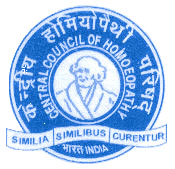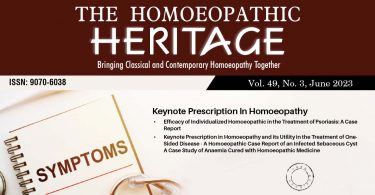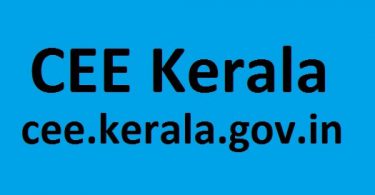
In a conversation with ARCHANA JYOTI, DR SUBHASH KAUSHIK, Director General of the Central Council for Research in Homeopathy (CCRH), sheds light on the importance of World Homeopathy Day, advancements in drug standardization, collaborative endeavors, and ongoing initiatives geared towards enhancing healthcare outcomes through homeopathy.
Why is World Homoeopathy Day important?
World Homoeopathy Day (WHD) holds significance as it commemorates the birth anniversary of Dr. Samuel Hahnemann, the founder of homeopathy, on April 10th each year. CCRH organizes scientific conventions on WHD focusing on different themes each year, such as integrating homeopathy in healthcare, enhancing quality research, and advancing scientific collaborations. Through these events, the homeopathic community explores innovative approaches, fosters scientific advancements, and strengthens collaborations for the benefit of patients and the advancement of homeopathic healthcare.
Drug standardisation is one of the mandates of the council. What are the significant achievements of the council in this area?
The Council has made significant strides in drug standardization, a pivotal aspect of its mandate. This entails comprehensive analyses of homeopathic medications, encompassing pharmacognostical, physico-chemical, and pharmacological profiles. These studies are conducted meticulously to ascertain the qualitative and quantitative properties of drugs, aiding in the establishment of benchmarks for quality assurance.
One of the Council’s key initiatives involves pharmacognostical studies, which delve into the morphological and microscopic characteristics of raw drug plant materials. Physico-chemical evaluations encompass parameters like moisture content, ash value, and extractive value, providing crucial reference points for quality assessment. Additionally, pharmacological studies on lab animals under controlled conditions enable the determination of a drug’s efficacy, safety, and mode of action.
So far pharmacognostical studies have been conducted on 366 drugs, physico-chemical studies on 426 drugs, and pharmacological studies on 180 drugs.
How are these results communicated to the stakeholders?
The standardisation of these drugs enables the upgradation of Homoeopathic Pharmacopoeia of India (HPI) subsequently. Furthermore, the Council has undertaken the revision and upgradation of the HPI to align with international standards and essential drug lists. This revision work, conducted at various research institutes across India, has been completed for 225 out of 344 drugs, encompassing pharmacognostic, physicochemical, and finished product standards (FPS) analyses.
Research conducted for the update of HPI’s XI Volume has been finalized, with monographs created as per the new template of the Pharmacopoeia Commission for Indian Medicine & Homoeopathy (PCIM & H). Additionally, the Council has undertaken research for the HPTLC ATLAS, focusing on 44 homeopathic medicinal herbs to enhance analytical techniques.
What are the types of clinical research trials the council has undertaken?
The Council’s clinical research endeavours span a wide range of disease conditions, including infectious diseases, dermatological disorders, respiratory disorders, endocrinological disorders, gastrointestinal disorders, rheumatological disorders, gynecological and obstetric disorders, urological disorders, ENT disorders, and mental disorders. Noteworthy achievements have been made in areas such as HIV/AIDS, chronic sinusitis, influenza-like illness, diabetes-related complications, and various other conditions of national health importance.
Although the clinical research findings are of utmost importance for clinicians, lately there has also been a growing interest among basic research scientists in validating these effects of homeopathy. What is your take on this?
Collaborations with experts and organizations have significantly advanced the science of homeopathy by facilitating fundamental and collaborative research (FCR) initiatives. These endeavors aim to validate the concepts of homeopathy on scientific parameters, explore the plausibility and nature of homeopathic medicines, and optimize the drug manufacturing process. Notable collaborations include institutes such as AIIMS, CSIR, ICGEB, IIT Bombay, universities, and research centers across India. The focus of basic research in these collaborations spans various disease conditions, including cancer, arthritis, dementia, and infectious diseases like malaria, dengue, and Japanese encephalitis. Encouraging results have been obtained, such as selective cytotoxic effects against cancer cells, induction of apoptosis in mammary epithelial carcinoma cells, and modulation of immuno-modulatory circuits to induce tumor apoptosis.
Are there any patents filed by the Council?
Yes, we have applied for eight patents in the last five years, showcasing innovative contributions to homeopathic formulations and treatment methods. These patents cover areas such as novel nosodes, potentization processes, formulations for therapy and prevention of viral encephalitis, and methods for treatment and prevention of inflammation or inflammatory diseases.
India suffers a potential threat of mosquito-borne diseases. What all has been done in this field? Can homeopathy help in these conditions?
The Council has made significant strides in validating the efficacy of homeopathic medicines for conditions such as dengue, chikungunya, malaria, and Japanese encephalitis (JE)/acute encephalitis syndrome (AES). For dengue, the Council initiated research studies to validate the preventive effects of homeopathic medicines and issued public health advisories recommending the homoepathic medicine Eupatorium perf 30C as a preventive measure. Similarly, for chikungunya, which often presents symptoms akin to dengue, homeopathic medicines like Eupatorium perfoliatum 30C have shown significant preventive efficacy. Research studies conducted by the Council have further validated the effectiveness of homeopathic medicines for both prophylaxis and treatment of chikungunya infections.
For malaria, the Council has undertaken research studies to understand the efficacy of homeopathic medicines as both prophylactic and treatment options. Homeopathic remedies such as Cinchona officinalis, Chininumsulph., and Malaria officinalis have shown promising results in combating malaria, particularly in areas facing challenges of multi-drug-resistant parasites.
Regarding JE/AES, where specific antiviral treatments are lacking, the Council has conducted extensive research on preventive measures and treatments using homeopathic medicines. During JE epidemics, homeopathic remedies like Belladonna 200 were distributed for prophylaxis, resulting in zero reported cases among thousands of individuals. Preclinical studies in collaboration with institutions like the School of Tropical Medicine, Kolkata, have further explored the efficacy of homeopathic interventions in both in vitro and in vivo models.
These endeavors underscore the potential of homeopathy in addressing mosquito-borne diseases where conventional treatments may fall short. By conducting rigorous research and collaborating with experts and institutions, the Council continues to contribute to the scientific validation of homeopathic approaches, offering hope for effective prevention and treatment strategies against these debilitating diseases.
Please share some key ongoing studies at the CCRH.
Currently, the Council is conducting clinical research studies on a diverse array of conditions, including chronic kidney disease (CKD), attention deficit hyperactive disorders (ADHD), psoriasis, lymphatic filariasis, post-COVID-19 illness, and various types of cancer. These studies are aimed at advancing scientific understanding and treatment options within the framework of Homoeopathy while adhering to rigorous research methodologies and ethical standards.
Most of the studies or trials in Homoeopathy are unknown to many.
We encourage those interested to know about homeopathy research and related updates to follow reputed medical journals on homeopathy or alternative medicine. The Council also publishes its journal, Indian Journal of Research in Homoeopathy. It is a widely read and internationally acclaimed journal showcasing research and achievements within the fraternity.





